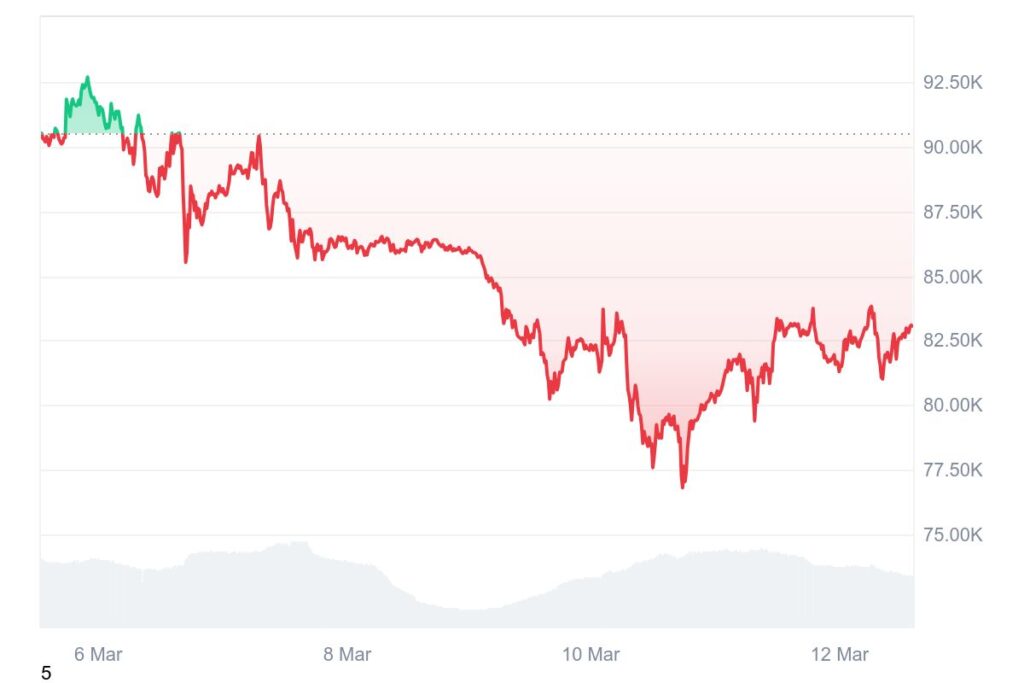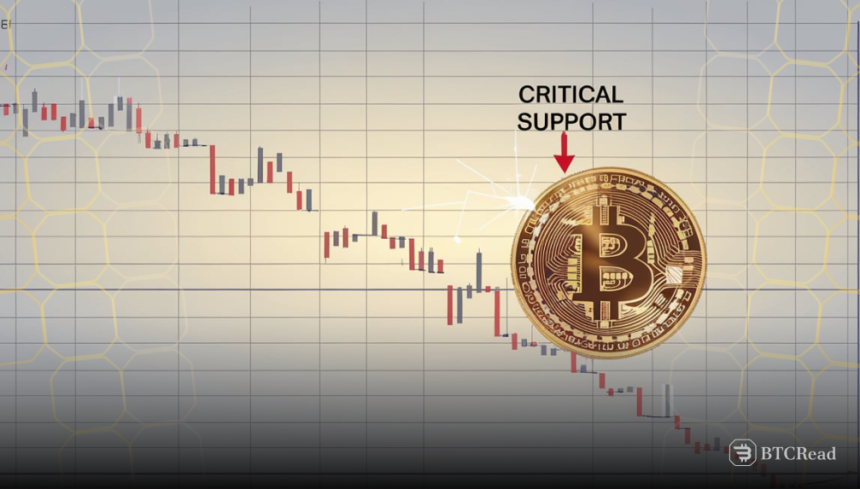The European Union announced new retaliatory tariffs against US trade actions. The action came after the recent imposition by the United States of tariffs against steel, aluminum, and related products.
This move has caused economic uncertainty with financial experts predicting increased cryptocurrency market volatility. Bitcoin may fall below its critical $75,000 support level as traders react to the trade war.

On 12 March the United States restored tariffs on European Union steel and aluminium imports. The government applies tariffs as high as 25% across a wide range of products, from consumer goods to industrial goods.
EU retaliates as trade dispute heats up
Washington argues the tariffs protect the American industry against unfair foreign competition. The European Commission calls the measures unfair and harmful to world trade stability.
The European Union will reinstate the suspended 2018 and 2020 rebalancing measures. The government will implement the countermeasures on 1 April 2025, targeting US exports such as motorcycles, bourbon, and boats.
In addition, the EU launched a consultation process to impose new trade restrictions against approximately €18 billion worth of American goods. The original US tariffs against EU steel and aluminum were first introduced by the Trump administration back in 2018.
In retaliation, the European Union took selective rebalancing measures against €6.4 billion worth of US products. The actions were suspended for a short time in 2021 when the two parties were negotiating a resolution. The latest US tariffs ended the truce and resumed trade tensions.
EU strikes back with new trade measures
The EU’s response is twofold. One is the automatic reimposition of the 2018 and 2020 rebalancing measures whose suspension expires on 31 March 2025. Second, the European Commission will impose further countermeasures proportionate to the extended range of the new US tariffs. The process began with a consultation with stakeholders launched on 12 March.
A target list of goods proposed by the Commission includes industrial products such as steel, textiles, and domestic appliances. Agricultural items including poultry, beef, dairy items, and sugar are also included. The proposed actions are subject to scrutiny by the EU Member States before their finalization in the middle of April.
Increased trade tensions strain world markets. European businesses face increased costs, and US exporters will lose their competitiveness within the EU markets.
Uncertainty determines investor sentiment, with Bitcoin and other digital currencies becoming risk assets. With the tensions in the macroeconomy heightened, Bitcoin is expected to struggle to maintain its value above the level of $75,000. Players are closely monitoring developments with expectations for trade and financial disruptions globally.







